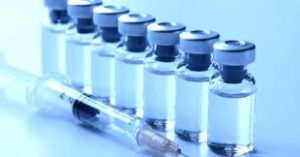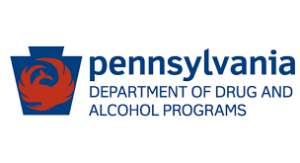PA Health Policy Update for the Week of February 7-11
The following is an update of selected state health policy developments in Pennsylvania for the week of February 7-11, 2022. (Some of the language used below is taken directly from state documents.)
 Proposed State FY 2023 Budget
Proposed State FY 2023 Budget
This week Governor Wolf proposed his state budget for FY 2023. Pennsylvania will go into FY 2023 with a budget surplus of approximately $3 billion and more than $2 billion in unspent federal American Rescue Plan Act (ARPA) funds. Health care highlights include a $91 million increase in Medicaid rates for skilled nursing facilities; a $37 million increase in funding for county mental health services; and $325 million in ARPA fund spending for long-term care recruitment and retention, health care workforce development, behavioral health workforce expansion, and loan forgiveness for critical care workers (highlighted here).
The proposed state funding for the Department of Human Services is nearly $4 billion more than the current fiscal year’s total, though much of that reflects increased spending attributable to the loss of enhanced federal matching funds. Proposed spending increases include:
- rate increases for HealthChoices, Community HealthChoices, and CHIP managed care plans
- increased Supplemental Nutrition Assistance Program benefits
- increased supplemental payments to personal care homes
- increased county mental health funding
- reducing the waiting list for intellectual disability services
- expanding court-appointed child special advocates
- expanding access to evidence-based home visiting programs (for parents of young children).
The budget also assumes a slight decrease in Medicaid spending attributable to the expectation that once the COVID-19 public health emergency officially ends states will be required to redetermine eligibility for the program – they are not permitted to do this during the emergency in exchange for additional federal assistance – and that Pennsylvania’s Medicaid enrollment will then be reduced. The budget assumes a smaller increase in CHIP spending for the same reason.
For further information, find Wolf administration budget documents here and a summary of the proposed Department of Human Services budget here.
Governor Wolf
Governor Wolf signed House Bill 1082 into law on Wednesday following its unanimous passage by the House and Senate. Act 9 of 2022 directs the Department of Health to establish and maintain an “Early Detection and Diagnosis of Alzheimer’s Disease or a Related Disorder” toolkit that includes best practices and cognitive assessment tools, including the use of appropriate diagnostics, to assist the primary care workforce with the detection, diagnosis, treatment, and care planning for individuals with Alzheimer’s disease. It also makes a technical change in the definition of “High Medical Assistance hospital” in Act 2 (House Bill 253) to align it with the legislation’s original intent.
Governor Wolf signed Senate Bill 739 following its unanimous passage in the House and Senate. Act 10 of 2022 appropriates $25 million in American Rescue Plan Act funding to support Pennsylvania’s emergency management services (EMS) companies. A press release issued by the governor’s office can be viewed here.
 General Assembly
General Assembly
- The state House and Senate convened for voting session this week. The following is a selection of health-related bills that received consideration.
- House Bill 1440 passed on third and final consideration by a vote of 132 to 67. This bill provides for the regulation and licensure of medical imaging and radiation therapy professionals. It will now be sent to the Senate.
- House Bill 19, which creates professional licensure for behavior analysts, passed on third and final consideration by a vote of 134-66. The bill was received in the Senate and referred to the Consumer Protection and Professional Licensure Committee.
- The House Health Committee convened on Monday, February 7 and favorably reported House Bill 1741, which allows for the prescribing and dispensing of off-label drugs to treat COVID-19, and House Bill 1693, which requires nursing home residents to be notified at the time of their admission that they have the option of having legal representation to assist with applying for Medicaid benefits.
- The Senate Health & Human Services Committee met on Wednesday, February 9 and favorably reported Senate Bill 1057, which enables pharmacists to be reimbursed for administering COVID-19 antigen tests.
- The House Appropriations Committee will begin budget hearings next Tuesday, February 15. The Senate Appropriations Committee will begin budget hearings the following week, on February 22. The hearing schedules can be viewed here.
Department of Human Services
- The Department of Human Services (DHS) has issued a Medical Assistance Bulletin informing providers that Chartwell Pennsylvania will be the preferred specialty pharmacy in the Medicaid fee-for-service specialty pharmacy drug program effective July 1 and explaining to providers how to access drugs included in that program. The bulletin applies to pharmacies and prescribers enrolled in Medicaid that serve participants in the fee-for-service delivery system. Find the bulletin here.
- DHS has updated the Medicaid program fee schedule to include a CPT code for dispensing the oral antiviral therapeutics Paxlovid (nirmatrelvir tablets and ritonavir tablets, co-packaged for oral use) and molnupiravir capsules for treatment of COVID-19. Learn more, including the new CPT code, in this Pennsylvania Bulletin notice, which also includes information about submitting comments in response to this action. Such comments are due within 30 days.
- DHS has released the minutes of the January 27 meeting of the Medical Assistance Advisory Committee meeting. Find them here.
 Department of Health
Department of Health
The Department of Health (DOH) has updated its infection prevention and control recommendations for health care settings during the COVID-19 pandemic. The update reflects a recent revision in the CDC’s guidance. Find the state update here.
DOH has updated its information about state-sponsored COVID-19 testing sites in Berks, Blair, Centre, Clinton, Clearfield, Fayette, Monroe, Somerset, and Venango counties and its map of additional testing sites around the state. Learn more in this DOH news release.
COVID-19: By the Numbers
- Daily COVID-19 case counts remain very high but fell significantly again over the past week. Pennsylvania’s seven-day average yesterday (February 10) was 5163 cases day; a week ago (February 3) its seven-day average was 8512 cases a day.
- To date, Pennsylvania has experienced more than 2.7 million cases of confirmed or probable COVID-19.
- The number of new COVID-19-related deaths also remains very high but declined slightly over the past week. Pennsylvania’s seven-day average yesterday (February 10) was 119 deaths a day; a week ago (February 3) its seven-day average was 135 deaths a day.
- To date, more than 42,000 Pennsylvanians have died from COVID-19.
- The Department of Health reports that the percentage of available adult ICU beds rose from 18.9 percent to 23.6 percent during the past week but the percentage of available pediatric ICU beds fell slightly, from 14.4 percent to 14 percent, over the same period of time.
- The Department of Health also reports that that in approximately 17.3 percent of all staffed adult ICU beds are COVID-19 patients this week, down from 22.1 percent last week, and that 27.6 percent of all ventilators in the state are currently in use, down from 30.6 percent last week.
- All 67 Pennsylvania counties continue to experience a high rate of COVID-19 transmission.
- The decline in the number of new COVID-19 cases is reflected in a 36 percent decline over since February 1 in the number of Pennsylvanians hospitalized with the virus. The number of people on ventilators also has fallen 36 21 percent since the first of the month and the number in ICUs has fallen 37 percent.
 Stakeholder Events
Stakeholder Events
Human Immunodeficiency Virus Community Prevention Planning Committee – February 16 and 17
The Statewide HIV Planning Group will hold virtual public meetings on Wednesday, February 16 and Thursday, February 17, 2022 from 9:00 a.m. to 4:30 p.m. Learn more about the meetings and how to participate from this Pennsylvania Bulletin notice.
DHS – Managed Long-Term Services and Supports Subcommittee – March 1
The Medical Assistance Advisory Committee’s managed long-term services and support (MLTSS) subcommittee will meet virtually on Tuesday, March 1 at 10:00 a.m. Go here to register to participate.
 Included in this month’s issue are articles about:
Included in this month’s issue are articles about: General Assembly
General Assembly Department of Human Services
Department of Human Services The Wolf administration has announced the creation of the Long-Term Care Resiliency, Infrastructure Supports, and Empowerment program, or LTC RISE, which seeks to give long-term-care facilities “…the support they need to battle COVID-19, recover, and rebuild.” Under the program, long-term-care facilities can pursue improvement projects in the areas of infection prevention and control and emergency preparedness; building a sustainable outbreak response operation; and promoting professional development and a resilient long-term-care facility workforce. The program is funded by a federal grant and replaces the state’s Regional Congregate Care Assistance Teams program, which expired at the end of 2021. Learn more about LTC RISE from
The Wolf administration has announced the creation of the Long-Term Care Resiliency, Infrastructure Supports, and Empowerment program, or LTC RISE, which seeks to give long-term-care facilities “…the support they need to battle COVID-19, recover, and rebuild.” Under the program, long-term-care facilities can pursue improvement projects in the areas of infection prevention and control and emergency preparedness; building a sustainable outbreak response operation; and promoting professional development and a resilient long-term-care facility workforce. The program is funded by a federal grant and replaces the state’s Regional Congregate Care Assistance Teams program, which expired at the end of 2021. Learn more about LTC RISE from  Governor Wolf announced that the state is organizing regional support sites for both hospitals and long-term-care facilities and strike teams to support hospitals facing staffing shortages. The effort, to be coordinated by the Department of Health and the Pennsylvania Emergency Management Agency, will include the following major components:
Governor Wolf announced that the state is organizing regional support sites for both hospitals and long-term-care facilities and strike teams to support hospitals facing staffing shortages. The effort, to be coordinated by the Department of Health and the Pennsylvania Emergency Management Agency, will include the following major components: CMS directed state survey agencies in certain states, including Pennsylvania, to begin surveying for compliance with the agency’s November 5, 2021 final rule requiring vaccination of health care staff.
CMS directed state survey agencies in certain states, including Pennsylvania, to begin surveying for compliance with the agency’s November 5, 2021 final rule requiring vaccination of health care staff.  COVID-19: By the Numbers
COVID-19: By the Numbers

 General Assembly
General Assembly Department of Drug and Alcohol Programs
Department of Drug and Alcohol Programs State Revenue Update
State Revenue Update  Department of Drug and Alcohol Programs
Department of Drug and Alcohol Programs